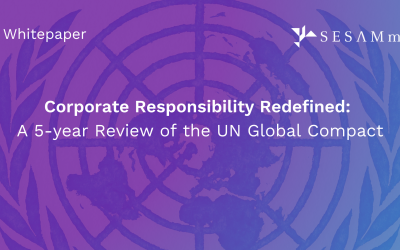UK Government rejects 1p fast fashion tax
The UK Government has announced that it has rejected recommendations from the Environmental Audit Committee over fast fashion.

The UK Government has announced that it has rejected recommendations from the Environmental Audit Committee over fast fashion.
The Environmental Audit Committee released a report in February which called for the UK fashion industry to take responsibility for the fast fashion mentality they have created.
Today, in a formal response, the UK Government rejected recommendations made by the EAC. Instead, they said that they are already working with the industry to reduce waste and have increased resources to ensure all British workers were paid at least the minimum wage.
In response to the UK’s Government’s dismissal, Mary Creagh MP and Environmental Audit Committee Chair said that the fashion producers should be “forced to clear up the mountains of waste they create.”
The original report had called for all clothing brands and retailers to pay a 1p tax on every garment they sell. It estimates that this could raise over £35 million in a year to improve textile reuse and recycling in the UK.
In the UK, around 300,000 tonnes of clothing ends up in household bins every year with around 80 per cent of this incinerated and 20 per cent sent to landfill.
Mary Creagh added: “The Government has rejected our call, demonstrating that it is content to tolerate practices that trash the environment and exploit workers despite having just committed to net zero emission targets. Ministers have failed to recognise that urgent action must be taken to change the fast fashion business model which produces cheap clothes that cost the earth.”
Last week, Theresa May announced that the UK would be the first G7 nation to set a legally binding target to cut carbon emissions to net zero by 2050.
The new decision to reject the tax and other recommendations set by the EAC will now leave the UK vulnerable to consequences created by fast fashion, a phenomenon that shows no signs of slowing down.
Read the full report here.






